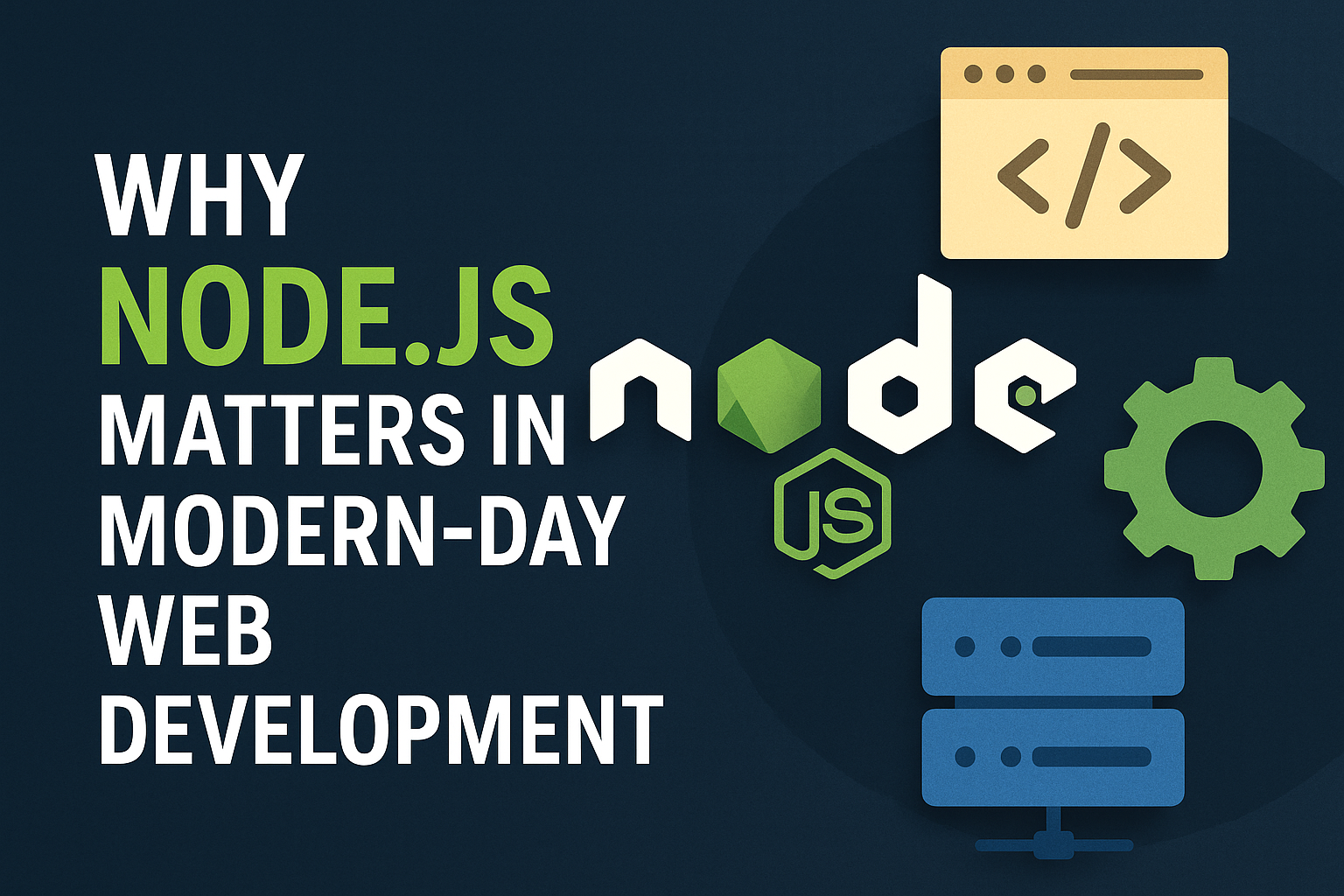Ever dabbled in web development? You've come across Node.js. Still unsure why it's a big player in today's web development world? You're in the right spot.
This blog will explain things in a straightforward, friendly way. It's for you if you're an aspiring web developer, a business owner wanting to understand your tech stack better, or just someone with curiosity.
What is Node.js?
Node.js is an open-source cross-platform runtime environment. It allows developers to build server-side applications using JavaScript. In the past, JavaScript worked for front-end tasks in the browser. Developers used PHP, Python, or Ruby for backend work. Node.js shook things up by bringing JavaScript to the server side.
It's constructed on Google Chrome's V8 JavaScript engine, giving it incredible speed and effectiveness. Since it employs JavaScript for both front and back end, it helps simplify web development. This is useful for teams or individual developers working on full-stack applications.
Why Web Developers Love Node.js
A major factor is its JavaScript-everywhere approach. Coders can apply the same language on both client and server sides. This has an impact on the development process, making it flow better, move faster, and stay easier to manage.
Then there's speed. Node.js runs on Google's super-quick V8 engine and uses a non-blocking, event-driven structure. This means it can deal with thousands of connections at once without getting bogged down — perfect to build real-time apps.
Scalability is another plus. Whether you're setting up a small blog or a busy online store, Node.js grows without a hitch.
Add a lively community and npm (Node Package Manager) — a huge collection of reusable code packages — and you've got a platform that's coder-friendly.
That's why big names like LinkedIn, PayPal, and Netflix use Node.js to run some of their most challenging features.
Real-World Applications and Use Cases
It's not just startups that are in love with Node.js. Companies like Netflix, Uber, Walmart, and PayPal have Node.js as part of their tech stack.
Look at it from Netflix’s perspective — they went to Node.js because they wanted to create load times that were faster and minimized start latency. This resulted in a smoother experience for their millions of users worldwide.
Node.js is not just for building apps at scale though, it truly excels in regular web development as well:
- Real-time apps such as chats, games, and live notifications can all take advantage of its event-driven architecture.
- RESTful APIs are faster and scale proportionately to demand.
- E-commerce sites get faster response times and improved performance.
Node.js provides developers the opportunity to build interactive, fast-loading, and scalable websites — which every modern-age site benefits from.
Key Benefits for Website Development
- Faster Development Time: One programming language across the entire stack reduces context switching.
- Cost-Effective: Less development resource requirements; no separate frontend and backend teams needed.
- Increased Development Efficiency: Frameworks like Express.js and NestJS speed up workflows.
- Better User Experience: Real-time responses and low latency create smoother web interactions.
How Node.js Improves SEO
- Speed: Node.js improves website speed, which Google uses as a ranking factor. Faster response times mean better Core Web Vitals and higher search rankings.
- Server-Side Rendering (SSR): Use frameworks like Next.js (based on Node.js) to pre-render pages server-side, improving SEO and initial load speed.
With all of these advantages, Node.js provides a robust foundation for any modern web development project.
Challenges of Node.js
No technology is without flaws, and Node.js is no exception.
- Callback Hell: Nesting too many callbacks makes code hard to read and debug.
- CPU-Heavy Tasks: Not ideal for tasks like video encoding or intensive computations.
Fortunately, best practices like Promises and async/await can address most of these issues.
Getting Started with Node.js
- Download Node.js from nodejs.org
- Use npm to manage packages
- Build your first simple HTTP server:
const http = require('http');
http.createServer((req, res) => {
res.writeHead(200, { 'Content-Type': 'text/plain' });
res.end('Hello from Node.js!');
}).listen(3000);
console.log('Server running at http://localhost:3000/');
Run the script, and just like that — your first Node.js app is live!
Wrapping Up
Node.js is a revolution in web development. Its speed, performance, and ability to build highly scalable applications make it an ideal tool for any web developer — whether you're creating something small or launching the next big app.
If you're already involved in website development or just getting started, learning Node.js is a valuable investment in your skills and future.
Happy coding!
Ready to create a future-ready website?
Get in touch with us at webseainfo.com . we transform your ideas into high-performance, SEO-optimized websites that drive conversions.
Keep an eye on our blog for more insights and development tips!

